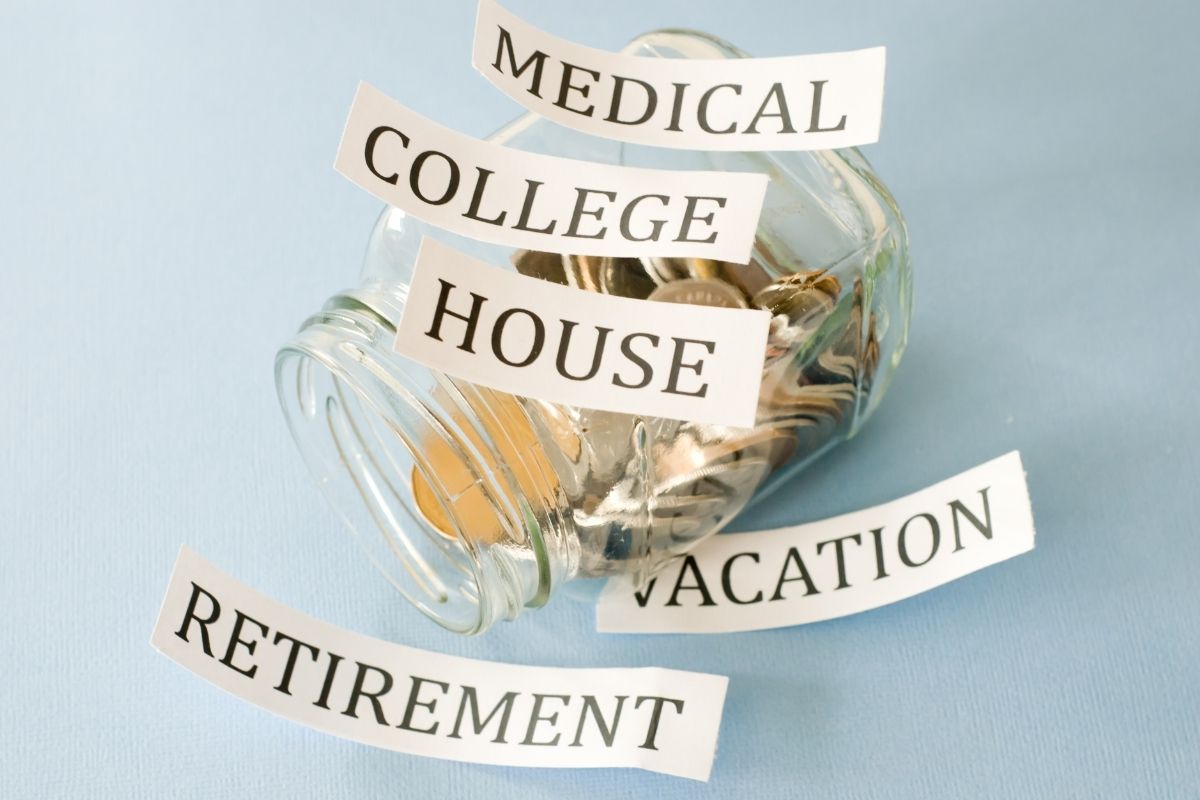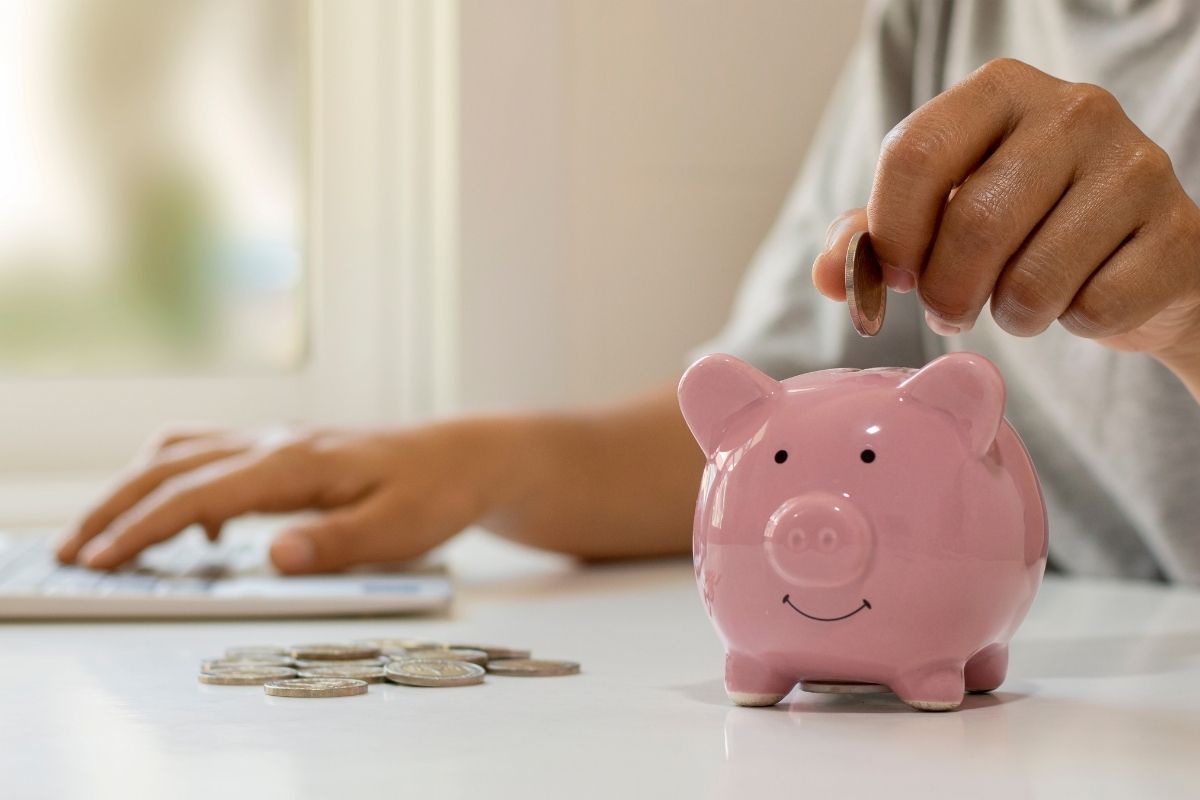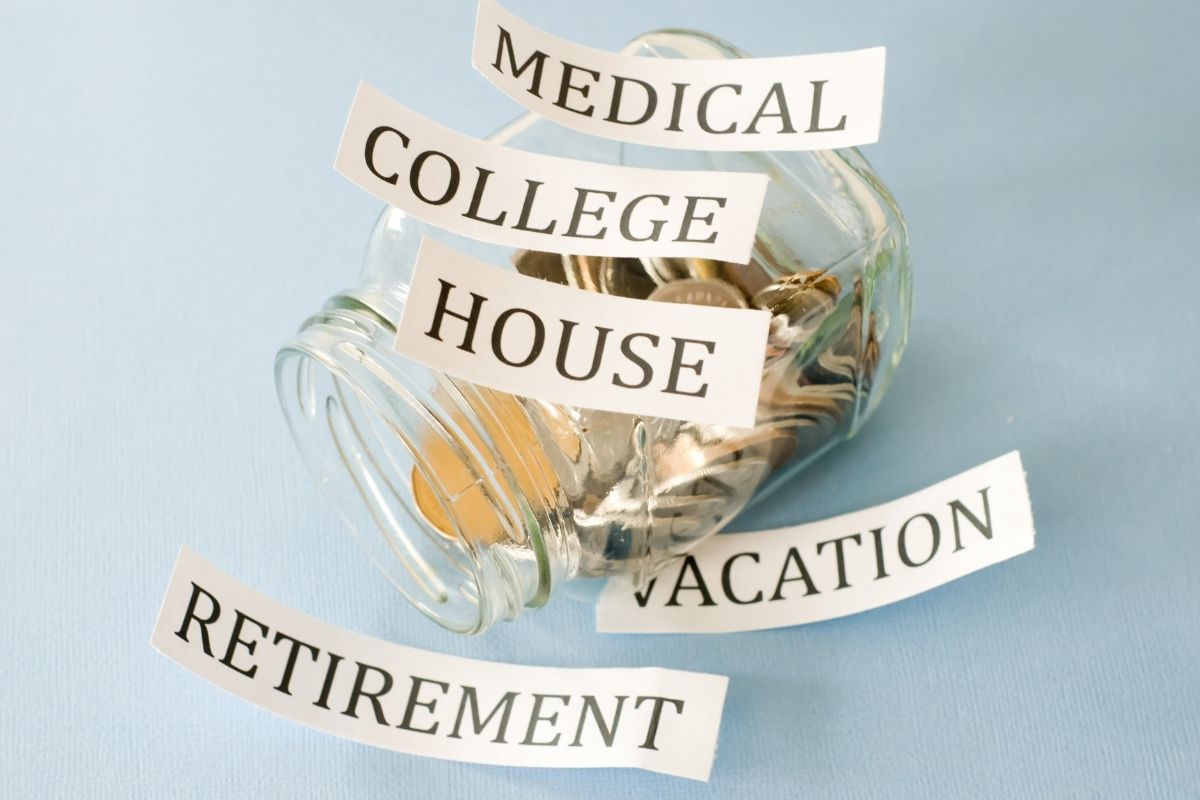Here’s the thing – we are all different. And, we can’t give you an exact amount that you should have saved by the time you are 30.

We all have different life circumstances, and we have all done different things in our lives, meaning that we have different financial situations.
However, we can give you our recommendations on just how much you should have saved up. And, we have some tips on how to really get into the savings game, too.
Savings By Age: How Much To Save In Your 20s, 30s, 40s, And Beyond?
Saving money is important for everyone. You can start saving early in life by setting up an automatic deposit into a bank account. You can also set up a separate account for each child or grandchild.
When you reach retirement age, you’ll want to make sure you have enough money to pay for your health care needs. You may also want to consider opening a college fund for your children.
The amount of money you save depends on several factors. Some of the most important include your current income level, your future goals, and your personal preferences.
So, How Much Money Should You Have Saved?
Fast answer: Your savings goal depends on your lifestyle. You can save money by cutting back on spending and finding a side job. You can find your magic number if you create specific savings goals.
Saving money is easy if you know what you’re saving for. Save for a treadmill that costs over $1000. Set up a bucket system to help you manage your money. Saving consistently is the key to saving for long term goals.
A windfall of cash, such as a tax return, can be helpful, but it shouldn’t be used as an excuse to slack off on your regular savings plan.
Let’s Talk Savings For Emergencies
You shouldn’t use your age as a guideline for how much money you need to save for emergencies. Instead, you should start saving 3 to 6 months of your monthly budget in an easy-to-access savings account.
An emergency fund is money set aside in a savings bank account only for unexpected expenses, such as emergencies, i.e. your dog swallowed a chew toy and needed a trip to the vet.
You need an emergency fund because if you didn’t have any money saved up, you’d be stuck paying out of pocket for your pet’s medical bills.
Emergency Funds And Your Monthly Spending
The ideal size of your emergency funds will vary depending on your monthly expenses. You should aim to have at least 3-6 months of expenses saved up.
What are you waiting for? Start saving today!
It is true that you should save enough money every month to cover three or six months’ worth of expenses. This means saving $3,000 per year or $6,000 per year.
In addition to this, you should try to spend less than 30% of your income on non-essential items.
Why Is 30 The Benchmark?
Most people will tend to panic when they hit 30 – because this is REAL adult territory. Who knows, you might be thinking about all the things you are yet to tick off your bucket list.
Or, you might even be thinking about how you plan on spending your retirement.
Most people think they’ll need $1 million when they retire. But the truth is, it’s hard to know exactly what you’ll need until you actually retire – and it is pointless to stress and worry about this.
Living in a ‘what if’ mindset will ultimately taint how you live your day-to-day life, and that’s not fun.
How Can You Save More Money?

You really should not allow your age to discourage you from saving money. You still have time to save before retirement.
And, you will be pleased to know that there are a lot of different ways that you can save money during your thirties.
If you are new to the savings world, then you really need to start with small amounts. It takes longer to build a habit of saving money than it does to lose one.
So, you can start small and build up to saving more of your income. If you can only afford $10 a week, start there. Then work your way up.
Don’t try to save too much all at once, because if you are new to saving up your cash, then you won’t stick with it.
In addition to this, you should make a budget. The first step to saving money is to figure out where your money goes. Look at your expenses and find places where you can cut back.
For example, maybe you spend too much on eating out – or maybe you spend too much money on cable TV. Cut back on these things, so you don’t have to worry about cutting back on other areas of your spending.
You can also use rewards programs as a means of saving cash. Many companies offer incentives like cash back and discounts for using their services.
These are great ways to earn extra money without making any changes to your lifestyle.
Paying off debt can also allow you to feel at ease and therefore feel much more confident when saving up money.
And paying off debts means less money going towards interest payments. Plus, you’ll be able to focus on building up your savings instead of paying down your debts.
In Conclusion
People who save money early in life indeed end up having more money later in life.
This is a topic of conversation that can actually cause a lot of stress because we will all be at different stages in our lives and have different sums of money saved due to this.
We all follow different paths in life and for this reason, some people will have a lot of money saved up by the time they are 30, and others won’t have so much.
This is especially true if you have spent an extended period of time in academia.
However, there are lots of ways that you can get into the savings game, and this will allow you to build up a nice pot of money by the time you are 30.
Financial Disclaimer
This post contains sponsored advertising content. This content is for informational purposes only and not intended to be investing advice.
The investing information provided on this page is for educational purposes only. compundingstacks.com does not offer advisory or brokerage services, nor does it recommend or advise investors to buy or sell particular stocks or securities.
The owner(s) of this blog is compensated to provide opinion on products, services, websites, and other topics. The owner(s) may be compensated if you click on a provided link and purchase or sign up for a service. Any product claim or advice about a product or service should be verified with the manufacturer, provider, or party in question. Copyright Compounding Stacks © 2022
- Is Coinbase Safe For Beginners? - March 25, 2022
- Are Penny Stocks Good For Beginners? - March 25, 2022
- Why You Shouldn’t Save Your Money In A Bank? - March 25, 2022

